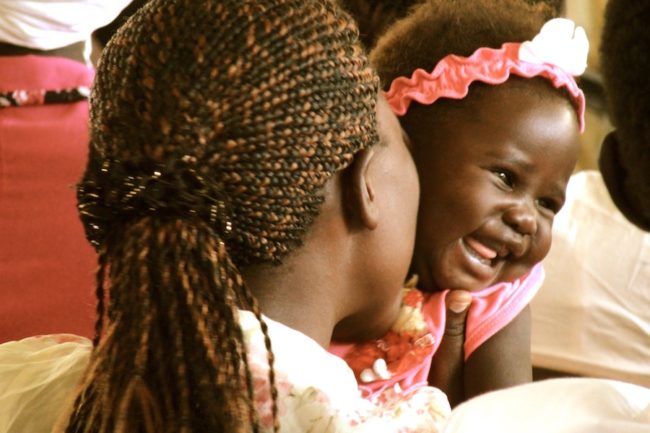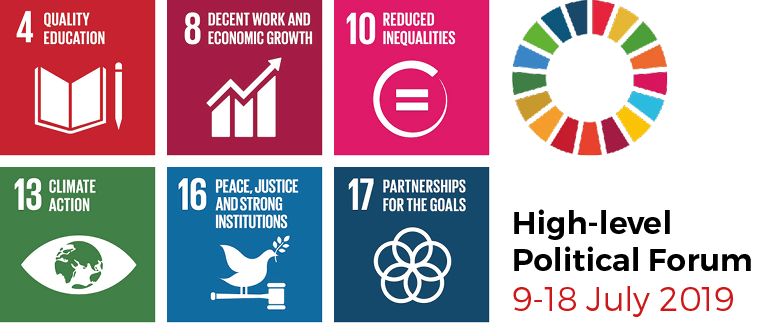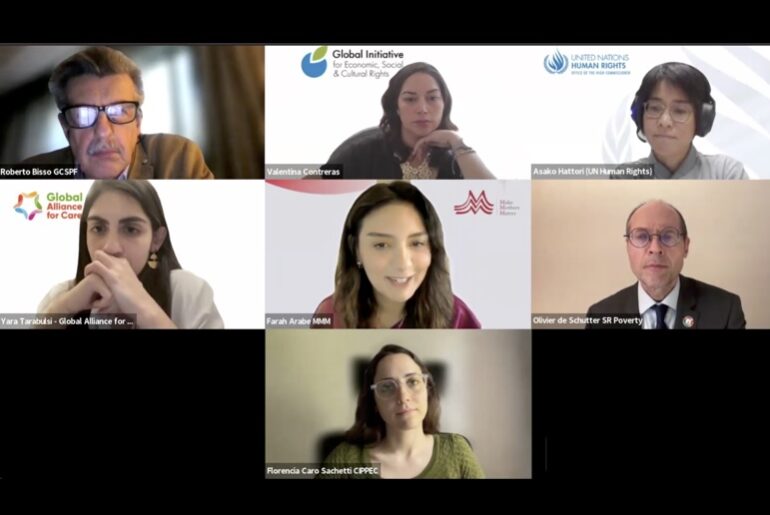Empowering Mothers for achieving the SDGs
20.06.19
UN New York, HLPF 2019 - We at MMM are convinced that empowering mothers can have a wide-ranging positive impact for the realization of many if not all the Sustainable Development Goals (SDGs). This was the key message of the written statement we submitted to the United Nations in preparation of the upcoming High-Level Political Forum, the UN platform that follows-up and reviews SDGs implementation - with a particular focus this year on the SDGs on education (4), decent work (8), inequality (10), and peace (16).

For mothers around the world – especially the most disadvantaged, living in rural or remote areas, the 2030 development agenda and its 17 Sustainable Development Goals (SDGs) offer hope for a better future for both themselves and their children.
But mothers must not only be considered as recipients: they must be considered as partners who have the potential to greatly contribute to the realization of this ambitious development agenda. Empowering mothers and investing in children and families can have a wide-ranging positive impact, right across many if not all the SDGs – a potentially high return on investment to advance sustainable development and peace, and make our world a better place.
We at MMM took the opportunity of the HLPF to show, in a written Statement, how empowered mothers can contribute to 3 the SDGs whose implementation will be reviewed this year. We also provide concrete recommendations on how this could happen.
- SDG 4: Making sure that mothers receive adequate education will improve the health and education of their children, which can transform society in many areas
- SDG 8: Supporting mothers’ labour force participation and addressing the many obstacles and discriminations they face to enter, stay and thrive in the labour market, would contribute to both economic growth and investments in children – the future workforce.
- SDG 10: Supporting mothers and family for nurturing Early Childhood Education and Care can make a difference to the future of their children, and lift them out of poverty, which in turn can go a long way to reduce inequalities in a country.
- SDG 16: Peace begins in the home, and starts already during the early years of a child. Supporting the educational role of parents, especially that of the mother, is crucial for building peace.
Read the full written Statement as submitted
Read the MMM Statement as published by the UN (ref.E/2019/NGO/18)
The High-Level Political Forum will take place on 9-18 July at the UN headquarters in New York under the auspice of the UN Economic and Social Council (ECOSOC).

In 2019, the HLPF will focus on SDG 4 (Ensure inclusive and equitable quality education and promote lifelong learning opportunities for all), SDG 8 (Promote sustained, inclusive and sustainable economic growth, full and productive employment and decent work for all), SDG 10 (Reduce inequality within and among countries), SDG 13 (Reduce inequality within and among countries), SDG 16 (Promote peaceful and inclusive societies for sustainable development, provide access to justice for all and build effective, accountable and inclusive institutions at all levels) and SDG 17 (Strengthen the means of implementation and revitalize the global partnership for sustainable development).
The New EU Gender Equality Roadmap : A Call for Inclusion of Mothers
04.03.25
The European Commission’s initiative on a new Gender Equality Roadmap post-2025, marks a significant step forward in addressing gender disparities across the European Union. Make Mothers Matter (MMM
Breaking the Cycle: Gender Equality as a Path to Better Mental Health
18.03.25
The Council of the European Union has taken a decisive step in recognising the vital connection between gender equality and mental health.
Europe Must Listen to Mothers: Our landmark report heads to the European Parliament
28.08.25
On 22 September 2025, the voices of mothers will take centre stage in Brussels. For the first time, Make Mothers Matter (MMM) will present its State of Motherhood in Europe








